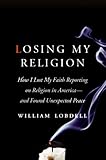Trying to see if blogger deals with a flaky internet. The internet at home (in Mumbai) where I am right now is rather flaky - pings to google.com range from 300ms to 2s depending on unknown factors. I think its because of the interesting wiring that the "electrician" and the "phone wallah" conspired to put in and convinced my dad that it was fine (because, you know, if you split a phone cable in 2, both lines are just fine, no extra noise from crappy connectors or anything). It also randomly goes OFF. Annoying as hell.
stech and I have a common blog on wordpress (because she likes that more than blogger) at http://bloggingindia.wordpress.com and we have lost two posts already because the stupid wordpress background save *does* *not* *work*. So, so, annoying.
So far, blogger seems to be better - its saving just fine and we'll see with the publish if thats better as well.
Edit: Success! Score +1 for blogger.
Monday, April 13, 2009
Friday, April 10, 2009
New blog for the india trip
stech made a new blog where we can both post our india experiences.
http://bloggingindia.wordpress.com
http://bloggingindia.wordpress.com
Tuesday, April 7, 2009
[books] Losing My Religion: How I Lost My Faith Reporting on Religion in America
 Losing My Religion: How I Lost My Faith Reporting on Religion in America-and Found Unexpected Peace by William Lobdell
Losing My Religion: How I Lost My Faith Reporting on Religion in America-and Found Unexpected Peace by William LobdellMy review
rating: 4 of 5 stars
An excellent book by a journalist about his journey embracing Christ, investigating the Catholic Church and eventual parting of ways with religion in general.
It really is a book in 3 distinct Acts:
Act 1 - From arreligious to an evangelical to (almost) a Catholic:
Its unclear whether Lobdell was an atheist to begin with (I think not), but he clearly was not a practicing Christian. A rough patch in his life led him to turn to God and seek support and solace in the Church. He has nothing but good words for the church that he joined and the people he met. All of them come across as very rational, yet very devout. They support him and help him get on the road to becoming a devout Christian.
Act 2 - Investigating the Catholic Church:
Lobdell was the religion reporter for the LA Times when the Catholic child molestation scandal broke. He investigated various such allegations and returned disgusted as what he saw as a fundamental breach of trust - the priests were supposed to be spiritual shepherds for their congregation and they abused this trust to permanently mess up the very children that they were trying to teach. What made him even angrier was systemic failures in the Catholic Church to expose known child molesters; instead the Church treated it as an internal matter, merely dismissing priests or even worse, moving them to other parishes where the pattern of abuse continued. The Church used its might, money and lawyers to squelch any complaints or protests whatsoever from the children that had been thus abused.
Act 3 - Embracing Atheism:
Investigating the church really seemed to cast a shadow upon Lobdell's faith. This led him to dig deeper and investigate the underbelly of the Christian faith - televangelists, preachers who claim to faith heal, the Trinity Broadcasting Network (largest Christian TV station in the world) and look at the economics of what was going on. Again, what seemed to make him really angry was not the millions that the preachers (or their churches) were making but the straightforward duping of the congregations and complete abuse of their trust. He notes stories of quadriplegics and terminal cancer patients given false hopes that they would walk out of church, healed (they weren't). What's even more heartbreaking is that people would put their faith in God and the faith healers and stop taking drugs thereby making things worse (and in some cases dying).
Lobdell talks about how it was hard for him to let go. He had a difficult time dealing with death - what happens after and if he was going to hell for abandoning God. He talked to friends and preachers about his loss of faith and certain qustions about God that had been bothering him - and didn't get any answers that he considered good enough. Its unclear if this was so because he had already made up his mind and was talking to these preachers almost as "due diligence" or out of a genuine need to resolve things.
On a personal note, the third act of the book really resonated with me. I went through something similar when I left the Jain fold around 2000. Its hard to deal with the fact that there is this life and then that's that - ashes to ashes, dust to dust. But if you come to terms with that, it makes life really nice. The worst that can happen to you is death. Every moment past is never coming back, so enjoy it to the fullest. Doing something you don't like to do is a monumental waste of time. Its also "simple". I don't have internal conflicts about being an engineer doing science by day and talking in an unknown language to beings whose existence is unprovable at night. I don't have to come to terms with reconciling faith and evolution or having to deal with things that I cannot measure (or view someone's measurement of the same).
All in all, a great book. Highly recommended.
View all my reviews.
Subscribe to:
Comments (Atom)